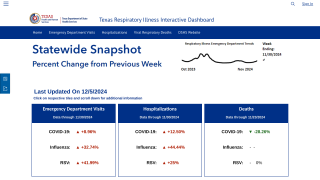Swine Flu In Southern California? Confirmed

The County of San Luis Obispo Public Health Department is investigating several cases of influenza in the community to determine whether they are linked to a case of influenza in a pig.
At this time, several patients have tested positive for an influenza virus that may be different from viruses that commonly circulate among people during the annual flu season.
The Public Health Department has confirmed that two recent cases of the flu in San Luis Obispo County are variant influenza A (H1N2v) infections, a type of flu that spreads among pigs.
When an influenza virus that normally circulates in swine (but not people) is detected in a person, it is called a “variant influenza virus.” For example, if swine-origin influenza A H3N2 virus is detected in a person, that virus will be called an “H3N2 variant” virus or “H3N2v” virus.
While the virus in these cases may be different from normal flu viruses, the symptoms and treatment are the same.
This type of influenza cannot be transmitted to humans by eating pork.
These infected people had extended contact with pigs at the California Mid-State Fair, which operated during late July 2018.
When the virus is transmitted from a pig to a person, it generally does not spread widely to other people.
Since 2015, the Centers For Disease Control and Prevention (CDC) confirmed 434 H3N2v cases, with the states of Indian and Ohio reporting the most variant influenza cases in the USA.
Previously, Andrew Bowman, a veterinarian with the Department of Veterinary Preventive Medicine at The Ohio State University, reported that on average, at least 1 pig at 25 percent of county fairs tests positive for swine flu.
The CDC says, if you seek medical attention for the flu and have had extended contact with pigs, tell your healthcare provider about that contact.
Our Trust Standards: Medical Advisory Committee


























